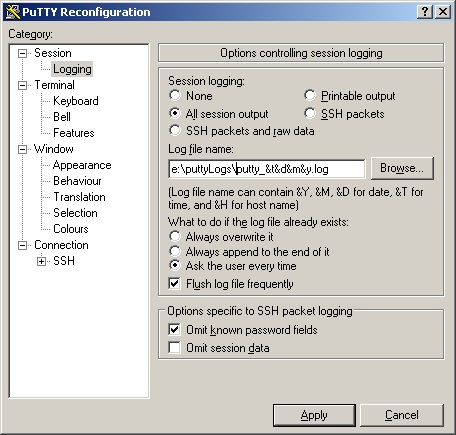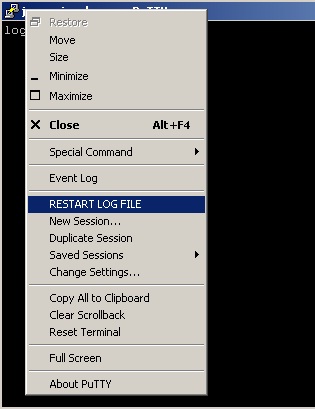Adding new menu item to PuTTY
This article has been migrated from my original post at embeddedinn.wordpress.com.
I came across a requirement to add a new easy access menu item to the putty terminal window for Windows. This article explains how I did it.
Requirement
I collect a lot of debug logs for my Linux development boards while working with some new problem. While I have some environment constraints that force me to work with my Windows Box, I find it difficult to split the log files just before a particular scenario occurs (so that it will be easier to identify what went wrong)
The general approach I take is to go change the logging in putty re-configuration to none, apply it and then change it again back to “All Session Output”. But doing this every time was not fun.
So, I decided to include a new menu item that automatically does this.
The problem was, there are no architecture documentation available for PuTTY (at least none that I came across). So, I had to dig through the code and here is how I achieved my objective
Code
I used the latest release source code for Windows available here
I used the express version of MS Visual Studio 2012 available for download here
The code changes I made are
- Define the
SECURITY_WIN32macro inputty.hto avoid compilation errors
#ifndef SECURITY_WIN32
#define SECURITY_WIN32
#endif
2) define the new SYSCOMMAND message in windows.c
#define IDM_RELOG 0x0080
3) Add the menu item in WinMain() of windows.c
AppendMenu(m, MF_ENABLED, IDM_RELOG, “RESTART LOG FILE”);
4) Add the callback handle code to WndProc() of windows.c
case IDM_RELOG:
{
cfg.logtype=LGTYP_NONE;
log_reconfig(logctx, &cfg);
cfg.logtype=LGTYP_DEBUG;
log_reconfig(logctx, &cfg);
}
break;
Compile the code, and you now have a new menu item to restart the log file








Leave a comment